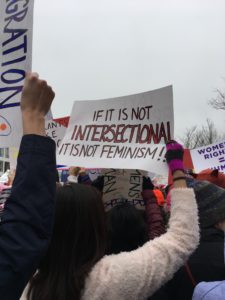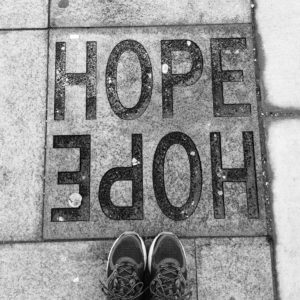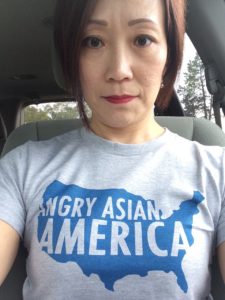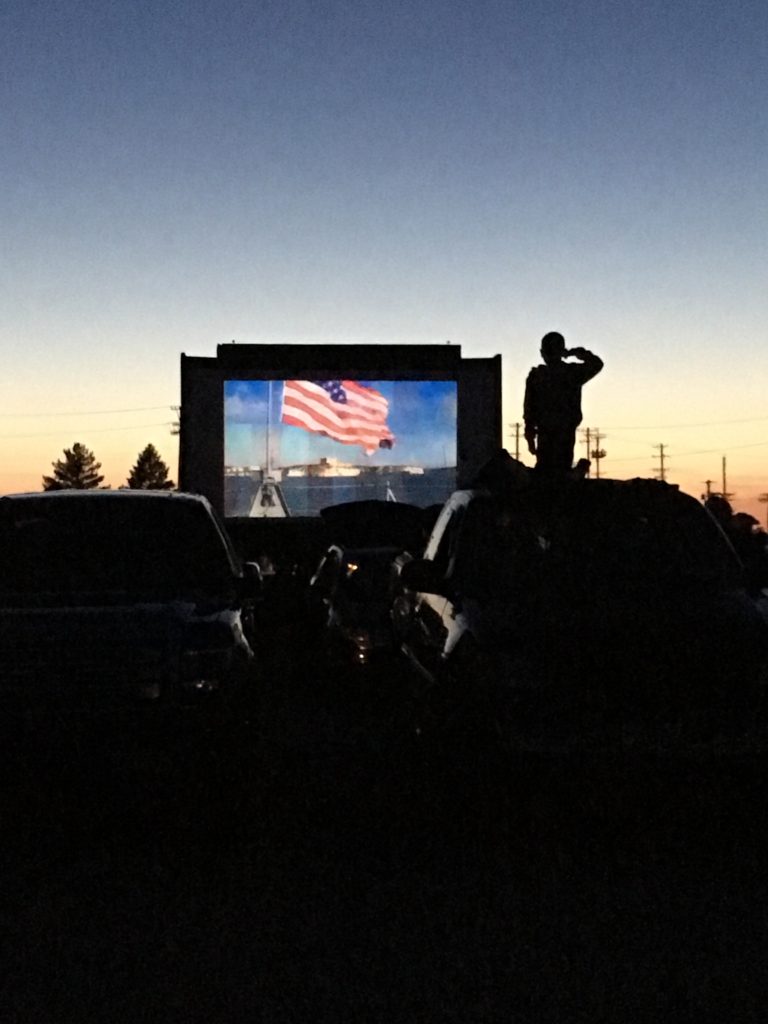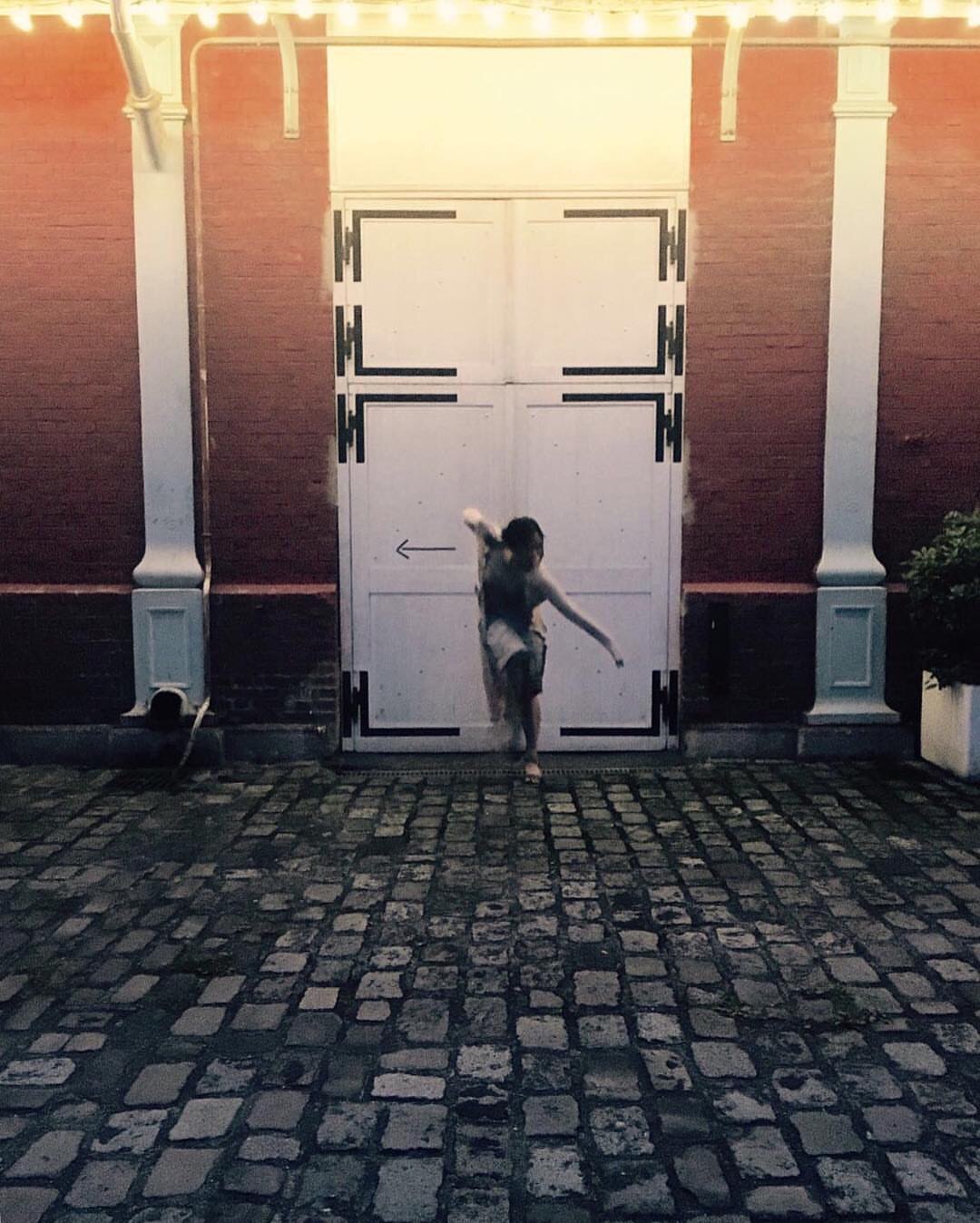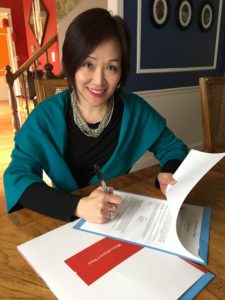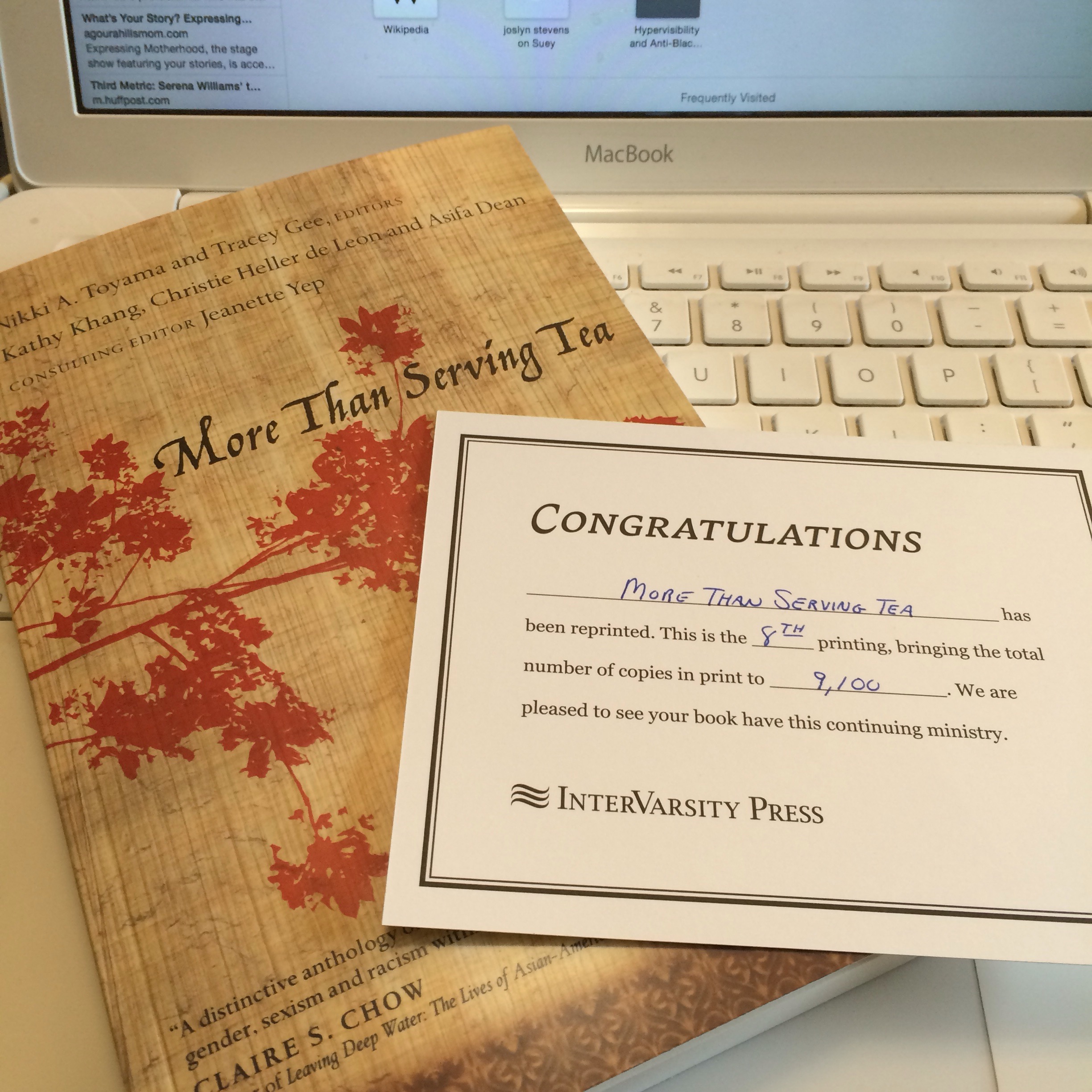I feel sick to my stomach. Walls. Immigrants. Refugees. Native lands. Silencing federal agencies. If any of My Dear Readers think they are going to be OK because, you know, God is in control, let me gently suggest you read the Bible. There is hope and deliverance but there also is a lot of suffering. We don’t get to skip out on the suffering because we go to church or are documented citizens. I’m also sure that Enoch is the only one lucky one who was “taken up”.
With that, I’m going to write about marching at the Women’s March on Washington. I’ll probably write more, but it’s in process. Thank you for indulging me.
First, me checking my privilege:
- I was able to be away from home Thursday-Sunday with little financial impact to my family, including carpooling with a dear friend the ride to and from D.C. from my safe little north suburb of Chicago and staying with friends while away.
- This was only my fourth protest march in the US, and I’ve never been arrested. (A little known fact: I marched against US military presence in South Korea as a college student where I learned about tear gas, exiting protests when things look a little iffy, and how to make and throw a molotov cocktail. My people know how to protest.)
- For now we live in a democracy where we have the right to protest. I have the energy and the cultural value of swallowing suffering. I didn’t have to worry if my wheelchair or cane would be problematic.
- I’m not a black or brown woman whose mere presence can threaten some #notallwhitewomen.
- As an Asian American woman I am often perceived by some #notallwhiteowomen as “safe” and quiet and practically white, practically invisible. I’m not. Because of that some but not all black and brown women don’t know what to do with me. I get that. We all have some learning to do. I do not experience the physical threat black and brown women face. WOC, however, all experience a dehumanizing through hyper-visibility and invisibility that as a Christian grieves me to the core. I’m still learning.
*************************
- The experience was better because of the 24 hours in the car with my friend Tina and my daughter. There was something about the adrenaline rush and crash, the expectation and the different experiences that filled in some blanks for me.
- The experience was better because I was able to prepare for, be present, and recover from the march with a group of Asian American women – my adult daughter, two former colleagues, and one current colleague who all have been a part of my journey for the past 21 years. (Add that to the list of privileges.)
- Why did that older white man feel like he could come up to my daughter and ask her to define intersectionality when he made clear he had seen it on other signs during the day? (I was so proud of her and her answer. If you don’t know what it mean, please Google it and know a black woman coined the phrase and developed the area of study.)
- From where we stood (for almost 6 hours) the crowd was sort of diverse. There were WOC present but my unscientific observation is that the diversity of the rally speakers was greater than than of the crowd. Again, I HAVE NO ACTUAL PROOF except for the SMALL FRACTION of the crowd I could see. But WOC were there, with our signs, with our friends and signs.
- When the Mothers of the Movement took the stage it seemed to me that many of the white women there had no idea who these women were and why we were asked to chant “Say Her/His Name”. Again, I don’t know this for sure, but I’m sorry. You don’t walk away and start marching because you’re tired of standing and listening to speakers when it’s the Mothers of the Movement.
- I wondered if Asian Americans would be represented up front. My friends and I joked that when ScarJo took the stage she might be the closest we get to a celebrity. I think she was. I was relieved to see Sen. Tammy Duckworth speak (she’s Thai American and a decorated war vet) and thrilled out of my mind to see my friend Sung Yeon Choimorrow, executive director at National Asian Pacific American Women’s Forum, took the mic wearing her “Not Your Model Minority” hat. Again, I found myself wondering if non-Asian Americans in the crowd understood the importance and implications of that phrase.
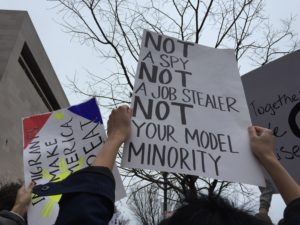
- The programming reflected a desire and need for representation but honestly we didn’t need to hear from Michael Moore, ScarJo, Madonna, Amy Schumer, and several other speakers. We didn’t because we hear from them when we don’t want to march. We meaning me/I.
- There is a lot of talk about how “peaceful” and arrest-free the marches across the country were. I’m not gonna play respectability politics. Reality is that with that many white women marching there was no way police were going to come out all militarized with riot gear like they did just the day before for the inauguration. However, I also wrote down the legal aid number in an inconspicuous place because I’m not white, because I protested against the U.S. government in another country, and because the government also has all my info, including biometrics because I went through the naturalization process. Paranoid? Maybe. But I can’t help but remember Executive Order 9066 and the incarceration of Japanese and Japanese Americans especially under this current administration.
- I went because I could, and I also have many (many, many, yuge numbers) of friends who couldn’t go because of work, family, health, self-care but wanted to march or wondered if they should march or could march. I marched for them and for myself. Marching isn’t for everyone. Protesting by marching, chanting and carrying signs isn’t for everyone. It’s for me. I can’t represent all Asian Americans but I can show up as one Asian American woman.
***********************
My personal action steps:
- Self-care. This is not about eating my feelings, avoiding the exhaustion and pain, or home spa treatments. It’s about making sure I am physically, spiritually, emotionally, and psychologically healthy and well. It means drinking more water, sleeping, praying, worshiping, laughing, crying, reading, and exercising. It means recognizing my body is a temple but I can’t hire people to clean, maintain, and feed said temple.
- Sign up for monthly volunteer opportunities that will make an impact locally.
- I’m a Christian and I might even still call myself an evangelical, and I haven’t been to church in months because it has not been a place of hope. If you are a person of faith, stay rooted in a faith-community. I am finding myself missing communal worship and prayer.
- Making at least one phone call each day to a politician or organization involved in this mess. Today I called the White House Correspondents Association to ask them to stop reporting lies and “alternative truths”, aka lies.
Here is a sample script for the WHCA: “My name is —– . I am a resident of the —– congressional district in (state) and there is no need for a return phone call. I am calling to ask reporters to stop repeating the lies and alternative facts of Sean Spicer and Kellyanne Conway. The American public deserves to read and hear truth, and if this administration is unable to communicate actual facts please stop quoting them.” Call 202-266-7453
So, I’m wondering. Did you, my dear readers, march? Why or why not? Are you glad you marched???
